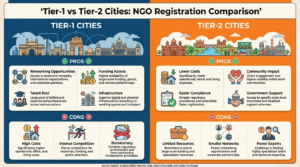Newport Beach is a city located in southern Orange County, California, which is known for its beautiful coastline. Apart from its picturesque landscape, the city also has many flourishing industries that have been around for many years, but with many industries also come many workplace injuries. If a person is injured at work, they have the right to seek compensation for their damages, and as workers’ compensation laws differ by state, it is crucial that people know their local laws.
California State Workers’ Compensation is a no-fault insurance system. The program was designed such that financial protection is provided to employees who meet with work-related injuries or illnesses. The policy ensures that injured employees can receive their rightful benefits by proving employer negligence.
Employees claiming compensation in Southern California, including Newport Beach, will require legal assistance to navigate the claims process. Workers’ compensation lawyers in Newport Beach will ensure your rights are protected and help you claim the benefits you are entitled to under the state law. However, it is still important to understand the losses that can be compensated for.
Medical Expenses
Workers’ compensation provides full coverage of medical treatment related to the injury, including:
- Hospital visits
- Surgery
- Doctor’s appointments
- Prescription medications
- Physical therapy
- Medical equipment (e.g., braces or wheelchairs)
The California State law stipulates:
- The medical treatment should be evidence-based, and pre-authorization is necessary in the majority of cases.
- The treating physician should be a member of the employer’s Medical Provider Network (MPN).
- The treatment plan has to comply with California’s Medical Treatment Utilization Schedule (MTUS).
Temporary Disability Benefits
If the employee is unable to work temporarily due to injury, they are eligible for temporary disability (TD) benefits. The wage replacement payments cover a part of the income loss. The TD benefits cover two-thirds of the worker’s average weekly wage. However, this is conditional on the state-mandated maximum and minimum.
There are two types of disability benefits for employees.
- Temporary Total Disability (TTD): Employees unable to work during recovery.
- Temporary Partial Disability (TPD): Employees who can work but not in full hours or capacity.
The employee will continue to get the TD benefits until able to return to work or reach maximum medical improvement (MMI).
Permanent Disability Benefits
Permanent disability (PD) benefits are awarded when the injury or illness results in lifelong impairments or long-term limitations. The percentage of PD is decided by the physician’s evaluation and a percentage scale reflecting the loss in earning capacity.
PD benefits are subject to state formulae and also take into consideration age, occupation, and impairment rating state formulas. Serious injuries are covered by supplemental job displacement benefits or life pensions over and above the PD payment.
Supplemental Job Displacement Benefits
If the injured employee is unable to return to their former post or work and if the employer does not provide suitably modified or alternative work, Supplemental Job Displacement Benefit (SJDB) can be claimed. This benefit includes a non-transferable voucher of up to $6,000 that can be spent for:
- Education or training programs
- License fees
- Resume preparation
- Equipment for retraining
This provision was made to help workers with permanent partial disabilities find new employment suitable to their physical condition.
Death Benefits
In cases where injury or illness results in death, the program has facilitated death benefits for dependents. The benefits include:
- Burial expenses (up to $10,000)
- Weekly financial support to a spouse, children, or other dependents
The amount is decided based on the number of dependents and their financial reliance on the deceased worker.
Excluded Losses and Limitations
The workers’ compensation does not cover:
- Pain and suffering
- Emotional distress not related to a physical injury.
Importance of Legal Assistance
The state of California has outlined the rights and procedures for workers claiming compensation, but processing these claims can be complex. It has been found that many workers are not aware of the full benefits available to them and how to contest a denied claim. Here, legal guidance is crucial, especially where medical treatment, benefit amounts, or eligibility are disputed.
Attorneys who understand the California workers’ compensation laws and are experienced in dealing with them can provide invaluable support.
Conclusion
Workers’ compensation is a vital safety net for injured employees. It covers their medical expenses, lost wages, disability, retraining, and death benefits. However, the claims process is complex and requires that workers understand their rights and obligations well, necessitating attorneys seasoned in dealing with this program.
If you’re interested in understanding international law enforcement organizations, you can learn about the difference between europol and interpol, and how they operate in global security.





Be First to Comment